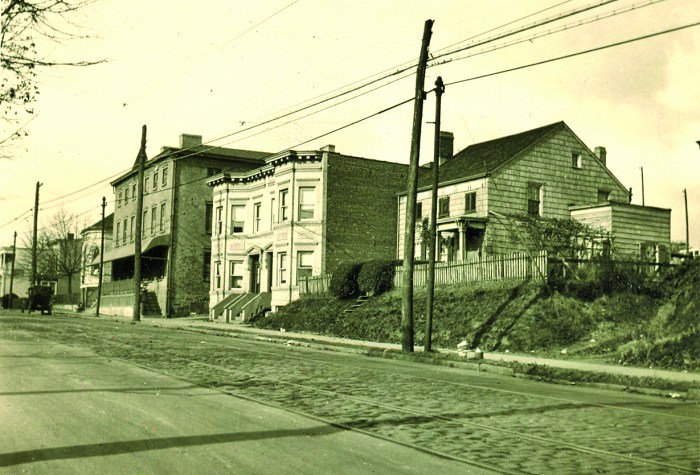New Yorkers weary of cold concrete and slow subways will envy the young couple in Ben Dolnick’s new novel, “The Ghost Notebooks.” Dreaming of gardens and birding and hiking and hammocks, Hannah and Nick flee the city for an upstate adventure. She’s the new caretaker at the Wright Historic House; he will finally get back to writing music and their relationship will certainly blossom anew. Then Hannah disappears.
The Brooklyn author’s fourth novel is an insightful look at our visions and revisions as we grapple with love and grief. Nick’s search for answers leads to questions about mental health — his own and Hannah’s — and the supernatural. You’ll also likely laugh. A lot.
amNewYork spoke with Dolnick about his inspirations for the book.
Do you believe in ghosts?
I don’t think that I do. I am willing to believe that we are massively wrong about a number of very important things, and possibly the afterlife is one of them, but in my heart I’m not quite there yet.
Did anything specific inspire the novel?
My wife used to work at a historic house in Prospect Park, called the Lefferts [Historic] House, so I spent a lot of time standing around historic houses sort of daydreaming stories, which is kind of what I do in free time. And she and I used to drive past the Lefferts House all the time, and one of the drives I said to her, ‘I don’t know why, but whenever we drive past at night I can really picture coming upon the house on fire, like [it’s] very easy to imagine flames shooting out of it.’ And she said, ‘That’s really weird. I do that too.’ . . . Often my novels work like that for me, that I get one image and then the novel is just sort of a process of like, figuring out, ‘OK, so why is the house on fire? Who set it on fire? Who lives there?’ and so on.
You write very movingly about loss and grief. What event did you draw on for that?
Well, I have known people who have died. Luckily no one as close to me as Nick is to Hanna, but I think to the extent that it drew on anything, there are those times . . . where a classmate or something, even somebody you don’t know very well, sort of shockingly dies. And for a few days, or sometimes longer, there’s kind of this, like a Band Aid has been pulled off. . . . You just feel how awful and random and permanent and devastating it is in a way that I don’t think you could quite bear to always feel it. And so I think I sort of tried, for the book, to squirrel my way back into those few days of shock that you always feel when someone you know even distantly has died.
There is some real laugh-out-loud humor in this book. Was that conscious to lighten very emotional material, or are you just a funny guy?
I did think it was important that the book be funny. I knew that it was going to have hopefully sad and spooky elements, and so I thought humor would be an important thing to have in the mix, just so the reader doesn’t have a totally gray experience. But I think it’s also the case in general, that just humor is incredibly important to me. All of my good friends are really funny, my wife is really funny, the books I love are really funny. Just if I know nothing else about a person, if I know that they’re funny, chances are I’m going to like them.
Did you ever live in a small town?
My wife and I do have a little falling-apart-y kind of house upstate. We actually bought it part way through the writing of this book, so it was sort of an accidentally very useful research tool. So to the extent that I have any experience with small-town life, that is it. But no, I’ve been in the city for, 18 years I guess.
It seems that one of the themes is maybe the shortcomings of the mental health services in the U.S. Is that an issue that’s dear to your heart?
I am very interested in mental health. I’ve seen therapists, I have experienced anxiety, depression, all the sort of normal stew of human stuff. I’ve never been hospitalized or anything, but I am very interested in and sort of, I guess you could say, disappointed about the extent to which it feels like we don’t really know what we’re doing with a lot of psychiatric treatment. For this book, I spent a day or two at Bellevue, on the East Side. It was just kind of depressing, obviously being around so many people who are incredibly depressed, but also it just didn’t feel very state-of-the-art, or something. . . . I don’t know exactly what kind of treatment I’m imagining, but the way that we do treat people who are mentally ill in such a different category than the people who are physically ill, I find kind of unfair and sad.
IF YOU GO
Ben Dolnick celebrates the release of “The Ghost Notebooks” with a conversation with Garth Risk Hallberg at Greenlight Bookstore on Feb. 13 at 7:30 p.m. | 686 Fulton St., Fort Greene, 718-246-0200, greenlightbookstore.com | FREE































